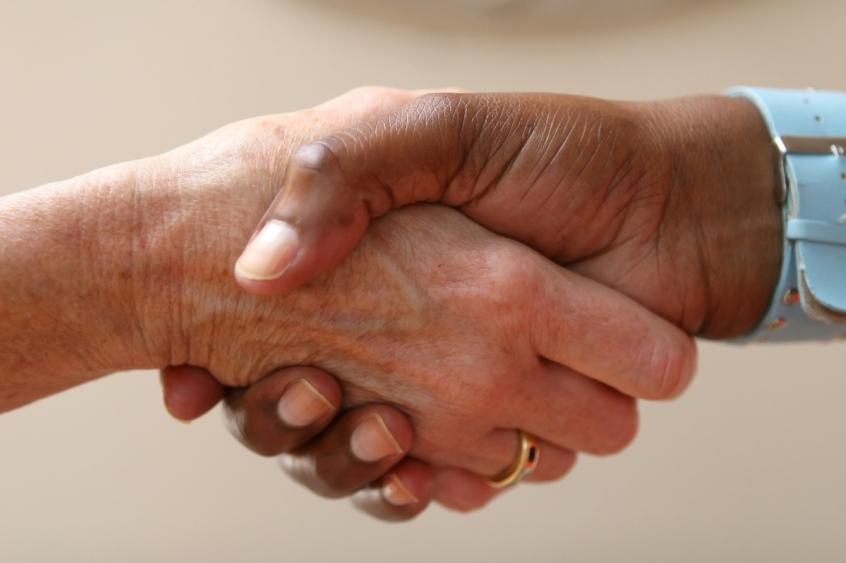
Gender parity is the theme set for today's International Women's Day, with the focus on moving beyond talk to purposeful action.
It's an important move. The 2016 campaign challenges women and men across the world to 'pledge for parity' – to take concrete steps, wherever they can, to create inclusive, flexible cultures that eliminate gender bias.
It's an urgent move too, especially in the light of discouraging statistics. The World Economic Forum reported in 2015 that the global gender gap across health, education, economic opportunity and politics had closed by only four per cent in the past 10 years. Despite another quarter of a billion women entering the global workforce since 2006, their wages lag 10 years behind those of men. And in education, the gap had actually widened in 22 per cent of the countries they surveyed. They suggested it could take another 118 years to close the whole gender gap completely.
International Women's Day has been celebrated for more than a century, actively campaigning for women's suffrage, international peace, women's rights to work, training and education, and better working conditions. Today it marks an official holiday in many countries, including Afghanistan, Armenia, Azerbaijan, Belarus, Burkina Faso, Cambodia, China, Cuba, Georgia, Guinea-Bissau, Eritrea, Kazakhstan, Kyrgyzstan, Laos, Moldova, Mongolia, Montenegro, Russia, Tajikistan, Turkmenistan, Uganda, Ukraine, Uzbekistan, Vietnam and Zambia. It creates time for reflection on what still needs to be done, with the consistent strapline 'think globally, act locally'. It is a strategic opportunity with no strings attached. According to Gloria Steinem, veteran social and political activist, International Women's Day belongs to no single organisation, initiative or political entity but is the collective efforts of all who care about human rights.
That surely includes the Christian church – both internationally, across denominational and cultural boundaries, and locally, in diverse gatherings of believers. We have both theological and pastoral reasons to put our weight behind justice-seeking initiatives. Teachings throughout the Scriptures, not least in the prophetic tradition of the Hebrew Scriptures, disclose the need to eliminate oppression, pay people a fair wage, respect the vulnerable and value the equal significance of people before God. It is a stance which chimes with much of the vision of International Women's Day.
Gender parity
This year I believe we have an open invitation to be even more involved because of its focus on 'gender parity'. Parity is a concept which speaks into much of our own Christian understanding of the nature and moral requirements of our lives as men and women. It is less blunt than the word 'equality' because it recognises that people start out from very different places and these have to be acknowledged and worked with. So, for example, parity in education recognises that people from different cultures or different family backgrounds have varying access to resources, but they should be equally supported to flourish in the educational system. 'Difference' cannot be eliminated, but it should never be a justification for unfairness or discrimination.
Our biblical understanding of gender already encompasses this. A careful analysis of the biblical narratives of women and men will recognise that they draw on a number of concepts, which include both equality and difference. We are different as female and male, young and old, from different contexts and cultures, but we are also equal as the image of God, stewards of creation, called to neighbour-love, gifted for service, and with an equal propensity for wrongdoing. St Paul's picture of the 'body of Christ' celebrates our diversity but also our equal inclusion, and the indispensability of each for the wellbeing of the whole.
Acknowledging difference does not justify stereotypic gender roles. Even in the patriarchal times of the Scripture writers, women were endorsed as prophets, judges and leaders of Israel; they were Christian evangelists, house church leaders, teachers, with prophetic gifts. Paul's famous injunction in Galatians 3:28 (in Christ there is neither Jew nor Gentile, slave nor free, male and female) eliminates all grounds for bias or discrimination.
'Gender parity' is therefore both a realistic and hopeful goal to aim for in the church. It recognizes that differences in global situation are evident; we do not start on an equal footing; 'one size does not fit all'. It also takes away the paradox outlined by Luce Irigaray in talking about the need for women to be 'equal'. She asks, "But equal to whom?" When the answer is always 'men' it leaves men as the reference point, the defining sex. Women are left trying to reach some 'male' standard.
The Christian acceptance of both gender difference and equality can encourage women to use their own voices, develop their own gifts, make their own vital contribution. Women must be empowered as women, through legislation, resourcing, gender-balanced leadership and elimination of gender bias.
And Christians across the globe can celebrate International Women's Day with enthusiasm knowing that its vision for gender justice – parity for half the human race – is one we must embrace to the full.
Dr Elaine Storkey is a sociologist and theologian. She is the author of Scars Across Humanity: Understanding and overcoming violence against women (SPCK.)
















